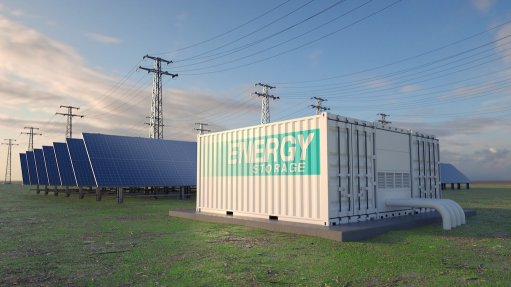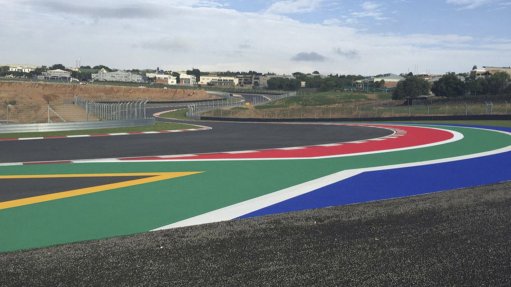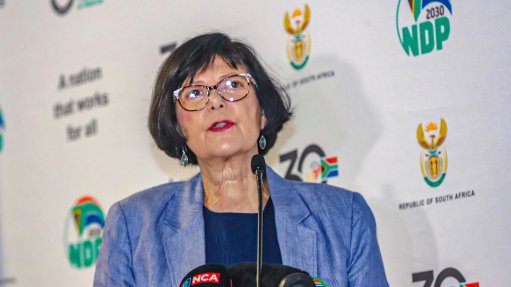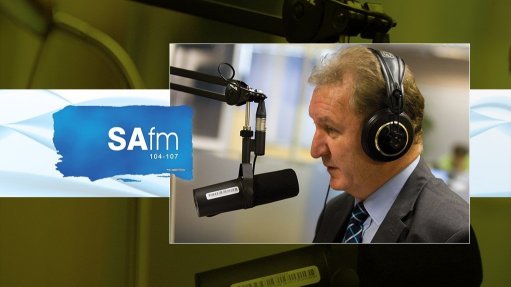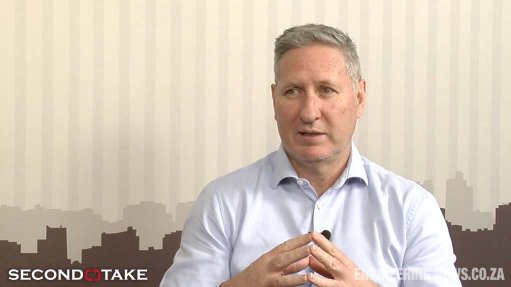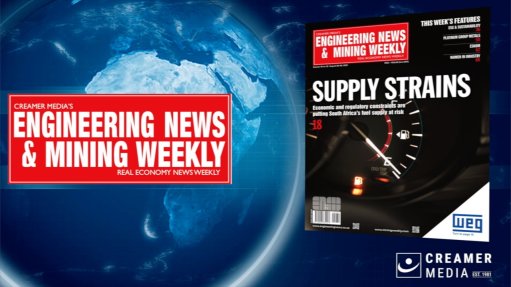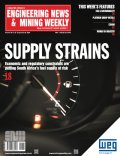Exploration presents huge upside potential if only South Africa can find the golden key

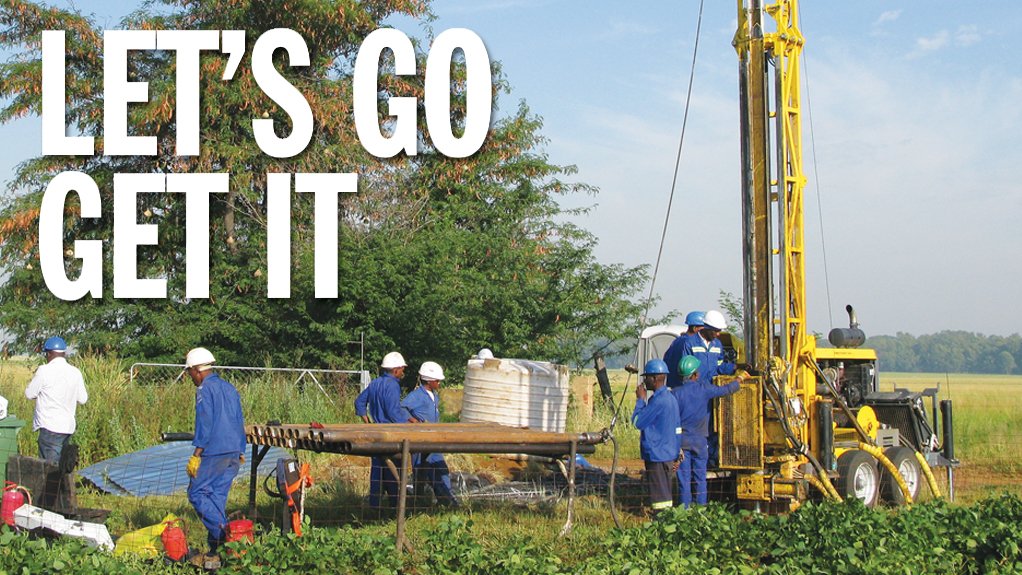
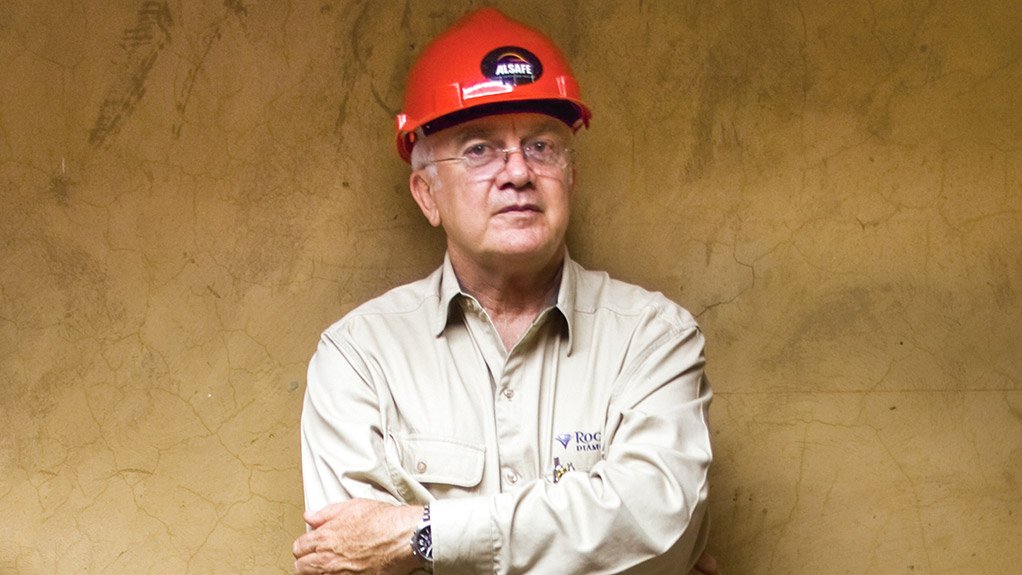
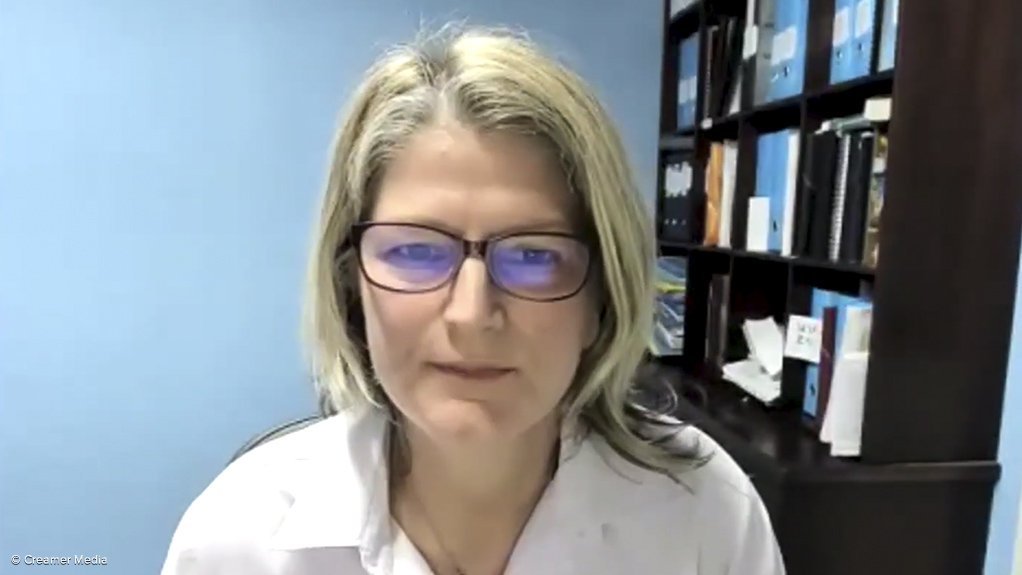
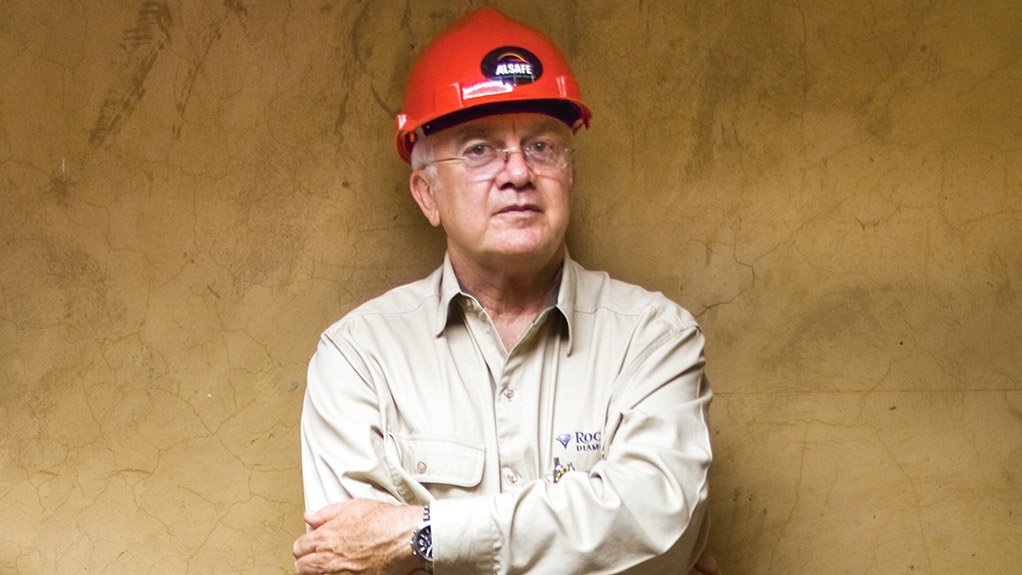
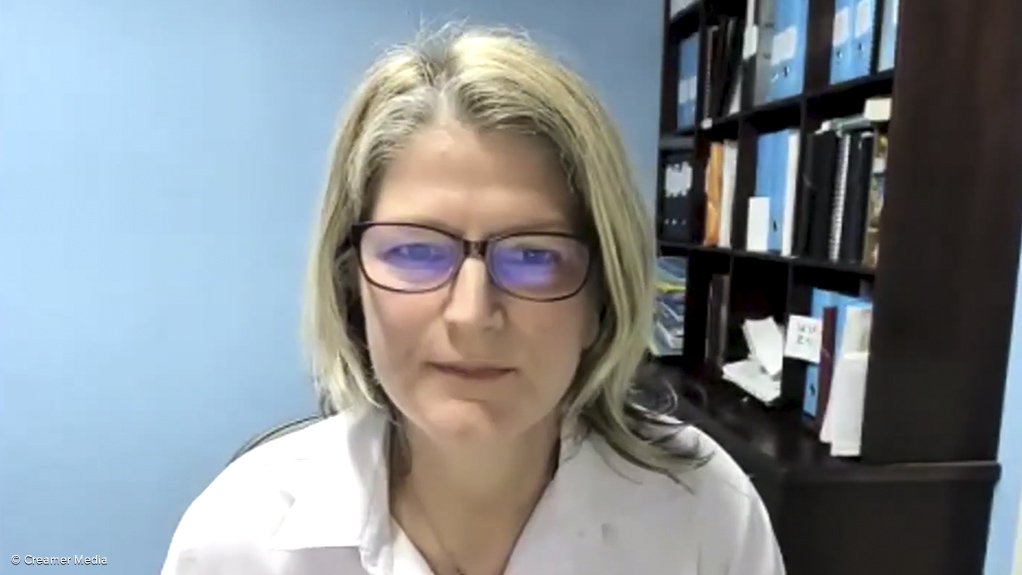
JOHN BRISTOW Exploration core samples from mining companies no longer operating in South Africa should revert to the State and be made available to today’s explorers
Photo by Creamer Media
REGINA MOLLOY Back-legislation should be introduced to ensure that historical exploration data on a licence that’s no longer held becomes the property of the State
Photo by Creamer Media
JOHN BRISTOW Exploration core samples from mining companies no longer operating in South Africa should revert to the State and be made available to today’s explorers
Photo by Creamer Media
REGINA MOLLOY Back-legislation should be introduced to ensure that historical exploration data on a licence that’s no longer held becomes the property of the State
Photo by Creamer Media
South Africa is a mining nation but falls badly short when it comes to mineral exploration, despite the country being highly prospective.
To reverse South Africa’s exploration inadequacy and turn its substantial mineral endowment to positive account, leading geologists are advocating a whole new approach to re-exploring South Africa.
“The first thing we need is transparency,” says highly experienced resources consultant geologist and mine developer Dr John Bristow, a renowned former De Beers geologist.
Bristow is credited with co-developing, in the 1980s, a unique micromineral (perovskite) age-dating technique at the Research School of Earth Science (RSES), Australian National University, Canberra, with Hugh Allsopp of the Bernard Price Institute, of the University of the Witwatersrand, and the RSES’s Bill Compston, courtesy of De Beers.
The starting point of ensuring transparency, geologists concur, is the making available of a cadastre, which has been requested for ten years but never provided.
“If you don’t release data for free, you’ll have no exploration,” says Exploration Geological Consultancy MD Regina Molloy.
Both Bristow and Molloy spoke to Engineering News & Mining Weekly in a Zoom interview, against the background of Mineral Resources and Energy Minister Gwede Mantashe setting a target for South Africa to move, within the next five years, from attracting only 1% of the global exploration dollars spent, to attracting an ambitious 5% of the exploration dollars spent.
Moreover, Department of Mineral Resources and Energy (DMRE) director-general Advocate Thabo Mokoena has committed the DMRE to having a comprehensive exploration strategy ready in the first quarter of this year.
“Exploration is the way to go and a priority,” Mantashe told the 2020 Junior Indaba in his keynote address in October.
Mokoena has expressed the view that South Africa needs to increase its share of global exploration expenditure to at least 3%, and Minerals Council South Africa CEO Roger Baxter has also spoken about South Africa securing 3% of the $10-billion a year spent globally on exploration. Baxter also supported the introduction of a flow-through tax incetive share scheme as being one part of a full suite of measures tailored for a comprehensive exploration strategy for South Africa.
On exploration, Mokoena has stated that part of the DMRE’s comprehensive strategy would be:
- the strengthening of administrative capacity to ensure transparency; and
- a halving of the turnaround times for the processing of mining, prospecting and environmental licences.
“Beyond this, we’ll finalise work with the development finance institutions and the private sector in the development of a comprehensive programme to support junior miners and ensure that prospecting rights are actively converted into mining operations and shared value,” Mokoena added.
Cadastre System
Questioned by Joburg Indaba chairperson Bernard Swanepoel on whether improving the DMRE’s currently inadequate cadastre system would form part of the comprehensive exploration strategy, Mokoena said: “On the cadastre, we have been getting some comments. I can confirm here that two weeks ago, we had a meeting with the Minister to discuss the cadastre and different ways and means in which we can deal with this matter.”
PwC’s SA Mine report stated that there is a need to improve the DMRE’s Samrad mineral cadastre system.
“I think it’s fair to say that it’s broken,” PwC African mining leader Andries Rossouw reported.
Mokoena responded: “We’re aware that it causes a bit of a challenge, as the comments have made clear. It’s something we’re working very hard on and I can confirm that on the side of the administration, you can’t be talking about attracting international investors while you still have this kind of a challenge. So, it’s a matter that we are really giving the highest level of attention, which it deserves.”
The economic transformation committee (ETC) of the African National Congress (ANC) said in its 30-page discussion document last year that mining exploration should be incentivised, as is the case in other mining jurisdictions, and that mining companies should be encouraged to list on the JSE
The ANC’s ETC document, which received positive reaction, puts forward an economic framework for reconstruction, growth and transformation, with the objective of building a new, inclusive South African economy, at a time when the Covid-19 pandemic is continuing to impact negatively on economic activity.
The document acknowledged the falling levels of investment in exploration and the job losses the industry had suffered in recent years. A consequence of the dearth of exploration spending was that fewer new jobs were created to replace those lost.
Mineral exploration is the process of searching for evidence of any mineralisation hosted in the surrounding rocks. The general principle works by extracting pieces of geological information from several places, and extrapolating this over the larger area to develop a geological picture.
Unless South Africa starts exploring again and finds new ore deposits, the country will continue to turn out the lights of the mining sector and deal a massive blow to the South African economy, says Bristow.
But, on the positive side, a modern exploration thrust, using new technology, presents a huge opportunity for South Africa to discover new-era minerals that have not been on its radar, he adds.
“We’re concerned parties and most of us, being geologists, are exploration mine development personnel, and we’re aware that the pipeline is insufficient to be sustainable for South Africa,” said Molloy, who, with Bristow, is a leading member of South Africa’s Overberg Geoscientists Group, which focuses on how South Africa’s exploration and minerals potential can be unlocked.
Mantashe told the Junior Indaba in November that junior miners are being encouraged to work with the Council for Geoscience and gave recognition to the critical attributes that support junior mining exploration activities, including:
- regulatory certainty, transparency in licensing system;
- investment in precompetitive geology; and
- tackling the barrier of access to funding, including potentially through the flow-through shares concept.
Bee Omitted For Exploration
Black economic empowerment (BEE) ownership has been omitted from the exploration phase and the Council for Geoscience has been directed to:
- focus on the requisite details of geological information at a scale of 1:50 000; and
- identify and drill anomalies to the stage of inferred resource.
“As we develop a comprehensive programme to support junior miners, we will finalise work under way with development finance institutions and the private sector,” Mantashe told the Junior Indaba event, in which Engineering News & Mining Weekly participated.
Although BEE has been omitted from the exploration phase, Molloy expressed the view that BEE should be reserved for the existing mines that are up and running and funded, but that it remained excessively onerous for those developing entities emerging from the exploration phase into the burdensome mine development phase; to give away 26% to 30% of high-risk exploration assets to locals is very, very off-putting, she warned.
At the same time, she said that many other aspects of South Africa are attractive: “South Africa has got wonderful mining expertise, great tax incentives and what have you. But all the heaviness of having to deal with the domestic problems of the past make it far easier to go elsewhere. For five years, I tried to bring foreign investments to South Africa. Everybody says no South Africa. They don’t even want to look at the projects,” she said, adding that South Africa is in what she referred to as “a national model”, which, she said, “is fine. You can do it in a national model, but you need to spend excessively, in the Council for Geoscience, on free this, free that. Scan every report you’ve got. Put it online for free. When I go to the Council for Geoscience they say that 1970s survey is proprietary. There’s nothing proprietary about geophysics in the 1970s. The geophysics is so critical as a freebie but it’s nowhere near the Council for Geoscience’s mindset to do that. So, whatever exploration strategy they come up with geophysics won’t be given out for free,” she said.
Molloy has a number of junior miners engaged with her Exploration Geological Consultancy but she cautioned that they would take a long time to mature as explorers and miners: “It possibly won’t be in my time. When you look at the history of South Africa, it was heavily endowed and didn’t have to work very hard for its mining assets and today, I guess, is a result of that,” she said.
“There’s a small junior market that we engage with, but they’ll probably take 20 years to develop. They’re not on a level of knowledge that will replace any significant resources in the country. They don’t even have the funding to do what they want to do and there is movement by the government that we know of where they are funding their own and doing their own exploration. But it’s not going to lead to any significant contribution to taxes and growth in the country going forward,” Molloy added.
South Africa continues to have two significant plusses going for it, said Bristow, the first being that it remains highly prospective and the second that it is still underexplored. Another big bonus is new technology, which is creating far-reaching new potential.
“We need a new fresh face or institution to drive exploration. I know that’s expensive. But exploration is 180º to what mining companies do. Most of all, we need exploration. But where is it?” he asked.
“You need to accept that here in South Africa, you’re not explorers, you’re miners. You don’t know how to explore. In terms of the strategy, it’s been derived by the Minerals Council and the Council for Geoscience. Neither has discovered a deposit in the last 30 years, so why would you have them drive the exploration strategy? Because you don’t acknowledge that you can’t explore.
“Very few nations can explore. Australians and Canadians are the only nations that can. The Australian industry was developed in my career. It was not where it is now. Canada and Australia have legislated on exploration for the last 40 years, which is what should be done.
“South African licences that have been relinquished or have expired should revert to the State so that the data can be used for the future prosperity of the South African nation. But South Africans don’t think of it in those terms. They think ‘I had this mine licence, it’s my data, you can’t have it’. It’s not looking at it in an holistic way. If anything, the DMRE should be looking at that in a socialistic way and saying, ‘your data is my data’. They should be back-legislating that any historical data on a licence that’s no longer held is the ownership of the State. That could help. I’ve suggested this to the Council for Geoscience myself, but they don’t even understand what I’m talking about,” said Molloy.
“All they have to do is to put in backdated legislation that all the data becomes the ownership of the State. There are many young geologists looking for work. Take them on in an internship programme to coordinate the documentation of all that core and go through the many articles written by the geologists of AngloGold Ashanti, which is no longer mining in South Africa, and scan them and put them into an electronic system and encourage people from wherever to come and look at that information and hopefully find two or three new deposits, or a corner of the Wits Basin at Klerksdorp or Welkom that can be opened. There are big areas of our Wits that probably could or should still be mined, until the investment environment is enabling again,” said Bristow.
Comments
Press Office
Announcements
What's On
Subscribe to improve your user experience...
Option 1 (equivalent of R125 a month):
Receive a weekly copy of Creamer Media's Engineering News & Mining Weekly magazine
(print copy for those in South Africa and e-magazine for those outside of South Africa)
Receive daily email newsletters
Access to full search results
Access archive of magazine back copies
Access to Projects in Progress
Access to ONE Research Report of your choice in PDF format
Option 2 (equivalent of R375 a month):
All benefits from Option 1
PLUS
Access to Creamer Media's Research Channel Africa for ALL Research Reports, in PDF format, on various industrial and mining sectors
including Electricity; Water; Energy Transition; Hydrogen; Roads, Rail and Ports; Coal; Gold; Platinum; Battery Metals; etc.
Already a subscriber?
Forgotten your password?
Receive weekly copy of Creamer Media's Engineering News & Mining Weekly magazine (print copy for those in South Africa and e-magazine for those outside of South Africa)
➕
Recieve daily email newsletters
➕
Access to full search results
➕
Access archive of magazine back copies
➕
Access to Projects in Progress
➕
Access to ONE Research Report of your choice in PDF format
RESEARCH CHANNEL AFRICA
R4500 (equivalent of R375 a month)
SUBSCRIBEAll benefits from Option 1
➕
Access to Creamer Media's Research Channel Africa for ALL Research Reports on various industrial and mining sectors, in PDF format, including on:
Electricity
➕
Water
➕
Energy Transition
➕
Hydrogen
➕
Roads, Rail and Ports
➕
Coal
➕
Gold
➕
Platinum
➕
Battery Metals
➕
etc.
Receive all benefits from Option 1 or Option 2 delivered to numerous people at your company
➕
Multiple User names and Passwords for simultaneous log-ins
➕
Intranet integration access to all in your organisation











